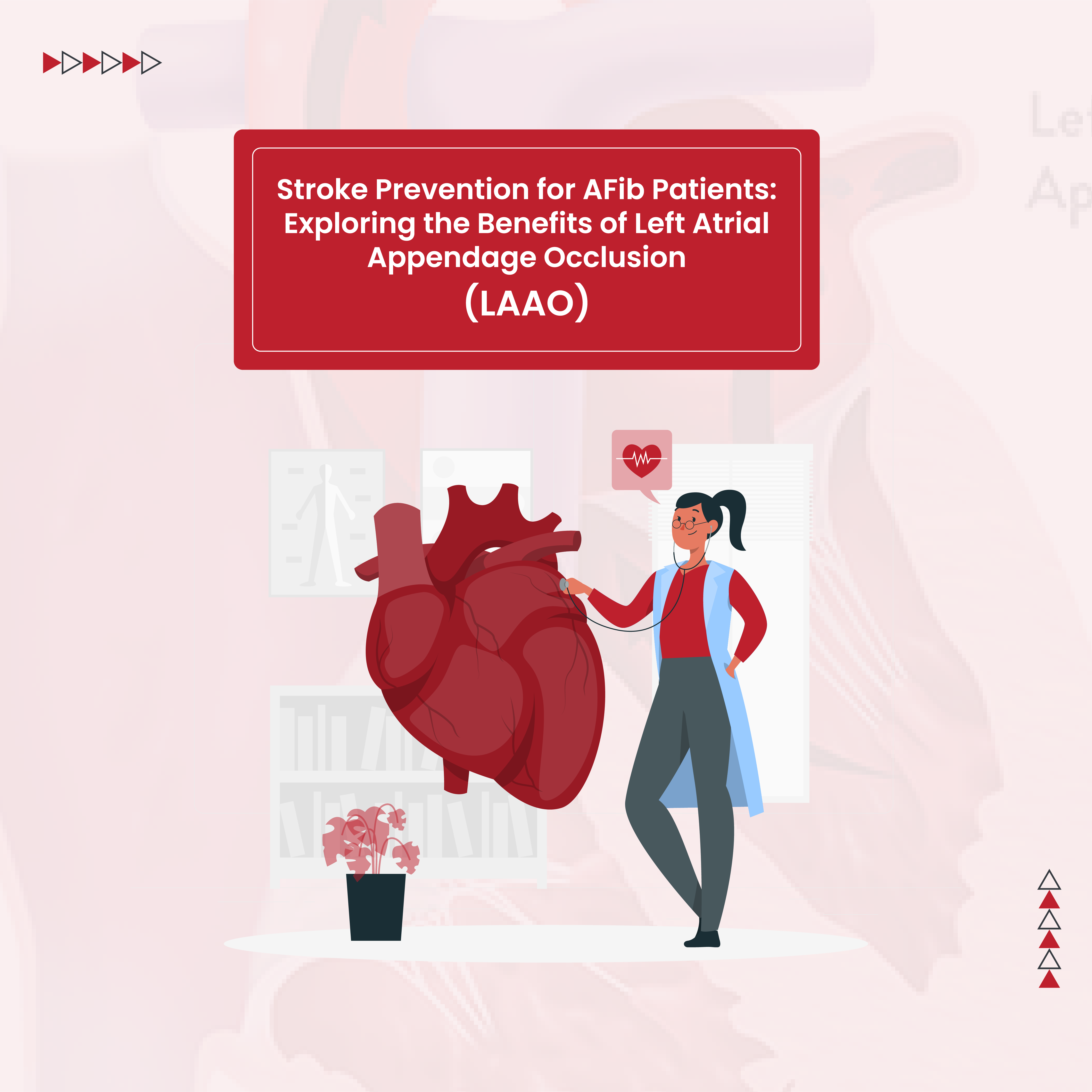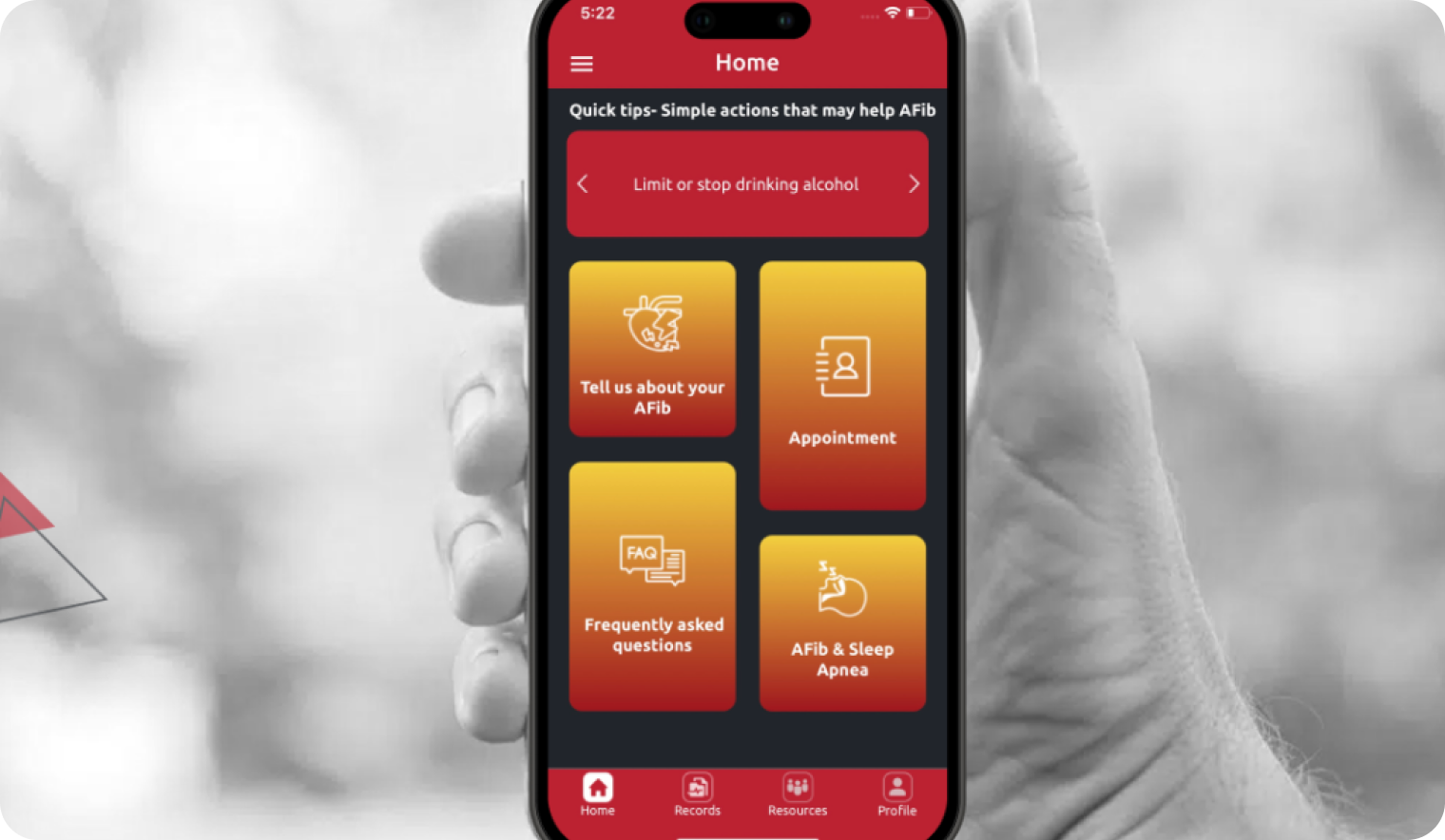Atrial fibrillation is caused by chaotic electrical signals which originate in the left upper chamber of the heart (atrium). There are a number of known risk factors and triggers for atrial fibrillation. A vital component of atrial fibrillation treatment is the effective management of risk factors and elimination of atrial fibrillation triggers.
Some AFib risk factors are not modifiable like congenital heart disease, gender, ethnicity or genetics. However, most common AFib triggers and risk factors are, at least to some degree, modifiable. Taking action to manage risk factors and eliminate triggers not only prevents atrial fibrillation it also helps make atrial fibrillation treatments (i.e. medications and procedures) more effective.
What can trigger atrial fibrillation?
Modifiable risk factors for atrial fibrillation include smoking, high blood pressure, obesity, diabetes, sleep apnea, and excessive alcohol use. Some of these, like smoking and excessive alcohol use are risk factors for atrial fibrillation and are also direct AFib triggers. Other triggers for atrial fibrillation include stress, certain medications, inflammation and excessive physical activity
Smoking
Smoking increases the risk of atrial fibrillation by increasing the risk of high blood pressure, heart disease, diabetes, and COPD. However, it also causes atrial fibrillation by having a direct toxic effect on the heart. Smoking has been shown to lead to increased stiffness (fibrosis) of the left atrium. An increasingly fibrotic left atrium is likely to trigger abnormal electrical signals which cause atrial fibrillation. People who smoke are twice as likely to develop atrial fibrillation as those who do not smoke.
Alcohol
Alcohol is irritating to the heart’s electrical conduction system and excessive alcohol use can cause AFib. It can also cause dehydration and electrolyte abnormalities which can trigger atrial fibrillation. If a person with atrial fibrillation is going to drink alcohol, it is recommended that women drink no more than 1 drink per day and men drink no more than 2 drinks per day. A standard drink is 5 oz. of wine, 1.5 oz. of hard alcohol (vodka, whiskey, etc.), and 12 oz. or regular beer.
Binge drinking, or drinking more than 4 drinks (women) or 5 drinks (men) on one occasion, is especially problematic for people with atrial fibrillation. An estimated 30-60% of episodes of atrial fibrillation evaluated in the emergency room are related to binge drinking. Many people believe that it is healthier not to drink during the week and only drink alcohol on the weekends. While this could be healthier, it is often associated with binge drinking. For example, there are 2 women who drink a total of 12 drinks per week. One woman drinks 1-2 alcoholic beverages per day. The other woman only drinks alcohol on the weekend, which sometimes starts on Thursday night. The second woman, who drinks her 12 alcoholic beverages over the course of 2-3 days, will have a significantly higher risk of developing atrial fibrillation than the first woman who spreads her 12 drinks out over the entire week.
In this example, it would actually probably be best if both women decreased their overall alcohol intake. Growing evidence that even moderate drinking (7-14 drinks per week) is associated with an increased incidence of atrial fibrillation. The risk of developing atrial fibrillation goes up with increasing amounts of alcohol consumption. Data suggests that for every additional alcoholic drink per day, there is an 8% increased risk of atrial fibrillation.
Drinking alcohol in moderation is important for all people but this is even more true for people with atrial fibrillation. This not only because of the dose dependent effects of alcohol on atrial fibrillation but also because increased alcohol consumption increases AFib risk factors like high blood pressure, obesity, sleep apnea, and heart failure.
Stress
Increased physical or emotional stress can trigger atrial fibrillation. The increased incidence of atrial fibrillation during/after physical stressors like surgery or infection has been well described. The mechanisms of this and the long term clinical relevance of atrial fibrillation in these situations is an area of active research. Additionally, strong emotions, like rage and anger, have been demonstrated to trigger atrial fibrillation episodes in people with a known history of atrial fibrillation. Even elevated levels of chronic stress and anxiety are linked to atrial fibrillation.
The exact relationship between stress and atrial fibrillation is still not entirely understood. Regardless of the source of stress, there is increased sympathetic nervous system activation in response to stress. This leads to the release of stress hormones, like adrenaline and cortisol. It is thought that these can contribute to stress induced inflammation and irritation of the heart’s electrical system. Stress management with activities like yoga, Tai-chi, and meditation are non-pharmacologic options that can be helpful in regulating the sympathetic nervous system.
Excessive exercise
Moderate physical activity has a number of health benefits including decreasing the risk of high blood pressure, diabetes, obesity, heart disease and sleep apnea. All of these are known atrial fibrillation risk factors. Indeed, studies have found that people who engage in moderate levels of physical activity seem to have a lower incidence of atrial fibrillation. However, there appears to be a dose dependent effect of exercise on atrial fibrillation with moderate exercise appearing to be protective and excessive exercise seeming to confer greater risk of atrial fibrillation. For example, ultramarathon athletes have been observed to have a higher incidence of atrial fibrillation compared to the general population. The correlation between excessive exercise and atrial fibrillation is particularly apparent at high altitude and with advancing age.
Positional AFib
Some people report that they have most of their episodes of atrial fibrillation after they lie down in bed at night. This is actually a well described phenomenon which is mediated by the parasympathetic nervous system. The parasympathetic nervous system is the ‘rest and digest’ part of our nervous system. As a person lies in bed and prepares for sleep the parasympathetic nervous system slows the heart rate. Sometimes as the body enters sleep mode the heart rate can slow down significantly. This can trigger abnormal electrical activity in the left atrium and cause atrial fibrillation.
Weight gain
Weight gain increases a person’s risk of developing atrial fibrillation. A recent study showed that even just 5% weight gain increased the risk of atrial fibrillation by 13%. This is especially true with more significant weight gain. For example, people who are obese are almost 30% more likley to have atrial fibrillation compared to those who are overweight. Weight gain also makes it more likely for atrial fibrillation to progress from being paroxysmal to persistent or permanent.
Part of this may be due to the increased prevalence of other atrial fibrillation risk factors (high blood pressure, diabetes, sleep apnea, etc.) with increasing weight. Another important component could be the increasing incidence of an epicardial fat pad with weight gain and obesity. Epicardial fat has multiple effects on the heart but it is thought to trigger atrial fibrillation by increasing inflammation and stiffening of the left atrium.

What about caffeine?
It is commonly thought that caffeine causes atrial fibrillation. However, there have been no studies to date which demonstrate a direct link between caffeine and atrial fibrillation. Caffeine is a known diuretic so theoretically if a person drank enough caffeine to become dehydrated there could be an increased risk of atrial fibrillation.
What medications can cause atrial fibrillation?
There are few medications on the market which research has shown to cause atrial fibrillation. Most of the medications with evidence that they may cause atrial fibrillation are heart medications. The heart medications with the greatest risk of atrial fibrillation are all ones which are administered under close in-patient observation or are prescribed and closely monitored by a cardiologist. There are medications used to treat non-heart related conditions which have been linked to an increased risk of AFib either in clinical trials or through case reports. In addition, there are some medication classes which were initially suspected of increasing AFib incidence which were subsequently found to have no relationship to AFib.
Over-the-counter cold medications
There have been case reports linking over-the-counter cold medications and nasal decongestants to atrial fibrillation. Oral cold medications often contain decongestants like pseudoephedrine and phenylephrine. A potential mechanism for the possible link between these medications and atrial fibrillation is that they can cause a transient increase in blood pressure. For most people, this blood pressure increase is minimal but some people can have a dramatic increase. It is possible that this could act as a trigger for atrial fibrillation in someone with a known history of atrial fibrillation. A similar mechanism could be responsible for the potential link between nasal decongestants and atrial fibrillation. The risk of atrial fibrillation being triggered by a nasal decongestant should be considerably smaller than with an oral medication because there is less systemic absorption.
Cold medication which only contains guaifenesin (i.e. Mucinex, Robistussin) and does not have a decongestant will not increase blood pressure and is safe for people with atrial fibrillation. Also, natural cold remedies such as staying hydrated (especially with hot liquids like tea with lemon and honey), nasal saline sprays, and Breathe Right nasal strips can all be helpful.
Oral steroids
Oral steroids, like prednisone and dexamethasone, are frequently used to treat inflammatory conditions and asthma or COPD exacerbations. While these medications can be vitally important, data shows an increased incidence of atrial fibrillation amongst people receiving oral steroids. Overall, current oral steroid use doubles the risk of atrial fibrillation.The risk appears to be greatest at the beginning of therapy with people recently started on steroids having a four-fold increased risk of AFib compared to people who have never taken oral steroids. High dose oral steroids also increase the atrial fibrillation risk. A person who was recently started on high dose oral steroids has a significantly higher risk of developing atrial fibrillation compared to someone who is on long-term low dose oral steroids for a chronic condition. At least some of the increased AFib associated with recently started, high dose oral steroids is probably secondary to the underlying illness or disease process which required treatment with high dose oral steroids.
Asthma medications
In addition to the increased risk of AFib with oral steroids as described above, other asthma/COPD medications have been implicated in an increased risk of atrial fibrillation. Theophylline, which is a daily oral medication used to treat asthma and COPD, has been shown to mildly increase a person’s risk of developing AFib.
This medication is not used very commonly but beta-agonists, which are a mainstay of asthma/COPD management have also been linked to atrial fibrillation. Overall, the risk of atrial fibrillation with these medications is very low. However, there have been case reports linking both short-acting (i.e. albuterol) and long-acting (i.e. salmeterol, formoterol) beta-agonists to episodes of atrial fibrillation. People with atrial fibrillation who feel like any of these medications is triggering their atrial fibrillation should speak with their healthcare provider. Often switching to a different formulation can be helpful. Alternatively, it may be that they are actually having an asthma or COPD exacerbation which is triggering the atrial fibrillation and needs to be addressed.
Osteoporosis medications
Osteoporosis affects more than 28 million Americans. Bisphosphonates are a very common class of medications used to treat osteoporosis. At one point there was concern regarding an increased risk of atrial fibrillation in people taking oral bisphosphonates (i.e. Fosamax). However, studies have not found a link between the two. There is a theoretical risk between injectable bisphosphonate (i.e. Reclast) but there has not been a significant increase of atrial fibrillation in relation to this medication observed clinically.
Antidepressants
Antidepressant medications have been shown to increase the risk of certain abnormal heart rhythms. A definitive cause-effect relationship between antidepressants and atrial fibrillation remains under investigation. Data has shown that people who were treated with antidepressant medications had an increased incidence of atrial fibrillation. However, on closer examination of this study the atrial fibrillation was noted to have begun before the antidepressant was started.
Does drinking water help with atrial fibrillation?
Staying hydrated is an important part of overall health maintenance. This is also true for atrial fibrillation. Dehydration can contribute to atrial fibrillation by causing an imbalance in electrolytes. The heart uses electrolytes, like potassium, magnesium and calcium, to maintain a normal heart rhythm. When electrolyte levels are too low, electrical conduction in the heart is affected and abnormal heart rhythms, like atrial fibrillation can occur. Common causes of dehydration are excessive alcohol intake, illness (fever, nausea, vomiting, etc.), pre-operative fasting, excessive exercise and low water intake.
It is generally recommended for adults to get about 2.5 to 4 liters (11-16 cups) of fluids per day to stay hydrated. All of that fluid is not just from drinking water. About 20% of fluid intake comes from food. Fruits and vegetables are an excellent source of fluids. They are also a great source of electrolytes. In terms of actual water intake, a goal of 8 glasses/cups per day is typically a good place to start.








